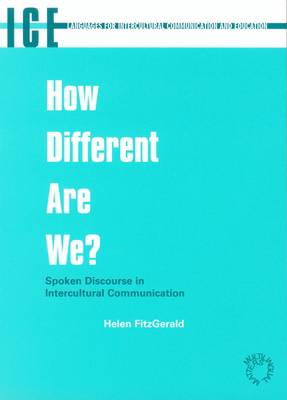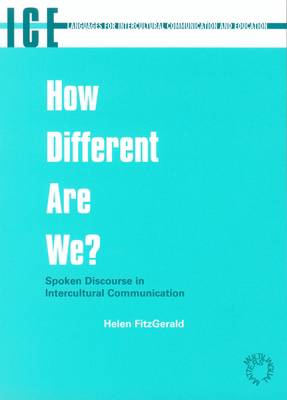
- Retrait gratuit dans votre magasin Club
- 7.000.000 titres dans notre catalogue
- Payer en toute sécurité
- Toujours un magasin près de chez vous
- Retrait gratuit dans votre magasin Club
- 7.000.000 titres dans notre catalogue
- Payer en toute sécurité
- Toujours un magasin près de chez vous
How Different Are We? Spoken Discoursehb
Spoken Discourse in Intercultural Communication
Helen FitzgeraldDescription
This book examines the influence of cultural values and communication styles on intercultural communication and demonstrates how training can develop intercultural communication competencies. A large number of interactions between well-educated immigrants from all continents and from more than a hundred countries, together with some including native speakers, are examined and participants' answers to questionnaires compared with their actual communicative behaviour. The author raises questions of interest to many groups: linguists, educators, business people and sociologists. Which values are most salient and enduring, and which cause clashes between cultural groups? To what extent do people retain the communication style identified with their first language and how do these different styles impact on others?
Spécifications
Parties prenantes
- Auteur(s) :
- Editeur:
Contenu
- Nombre de pages :
- 272
- Langue:
- Anglais
- Collection :
- Tome:
- n° 4
Caractéristiques
- EAN:
- 9781853596209
- Date de parution :
- 08-11-02
- Format:
- Livre relié
- Format numérique:
- Genaaid
- Dimensions :
- 147 mm x 211 mm
- Poids :
- 453 g







